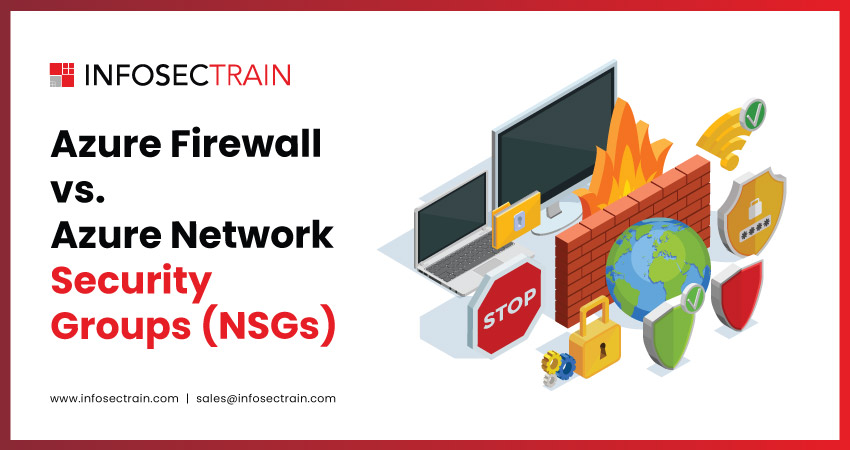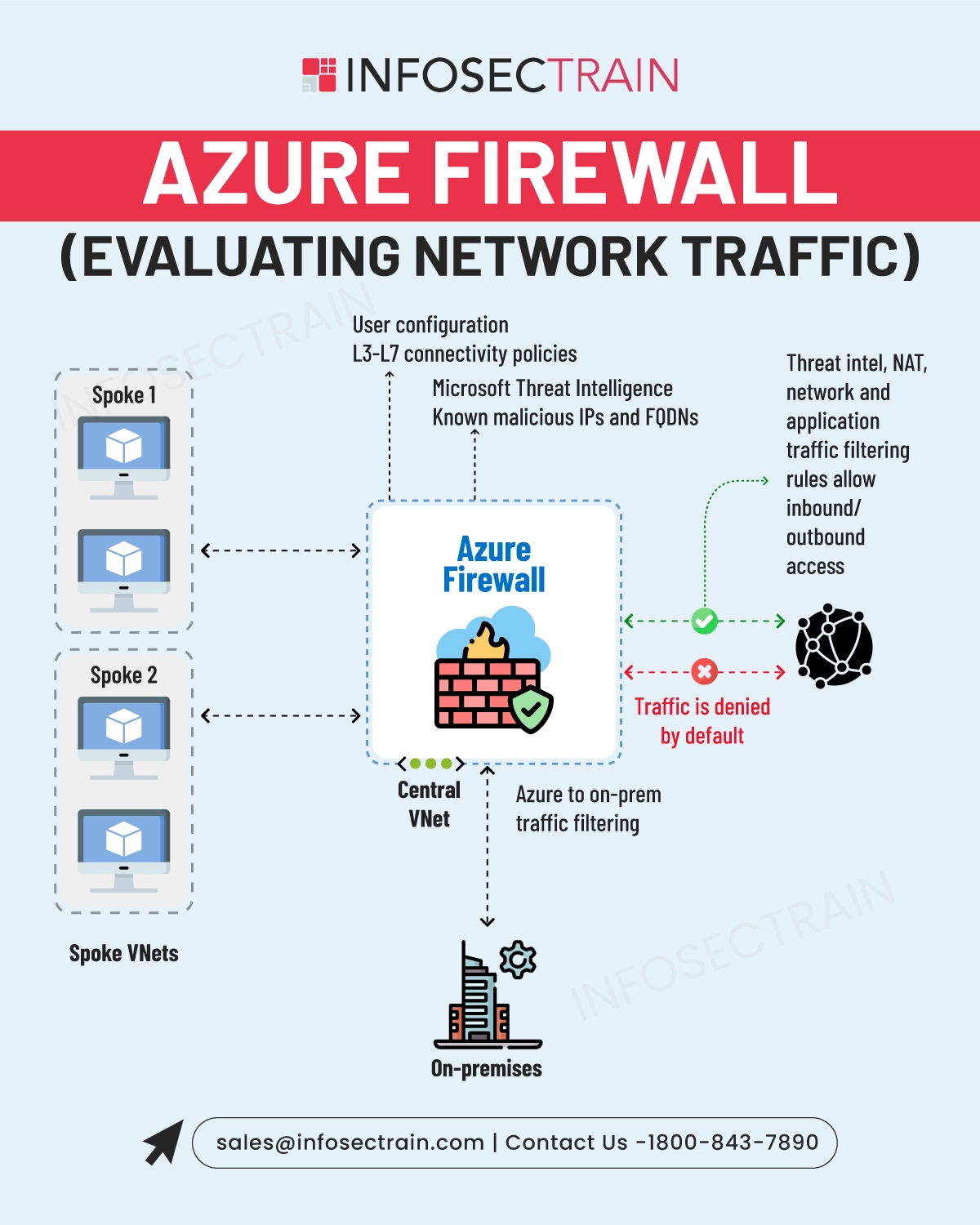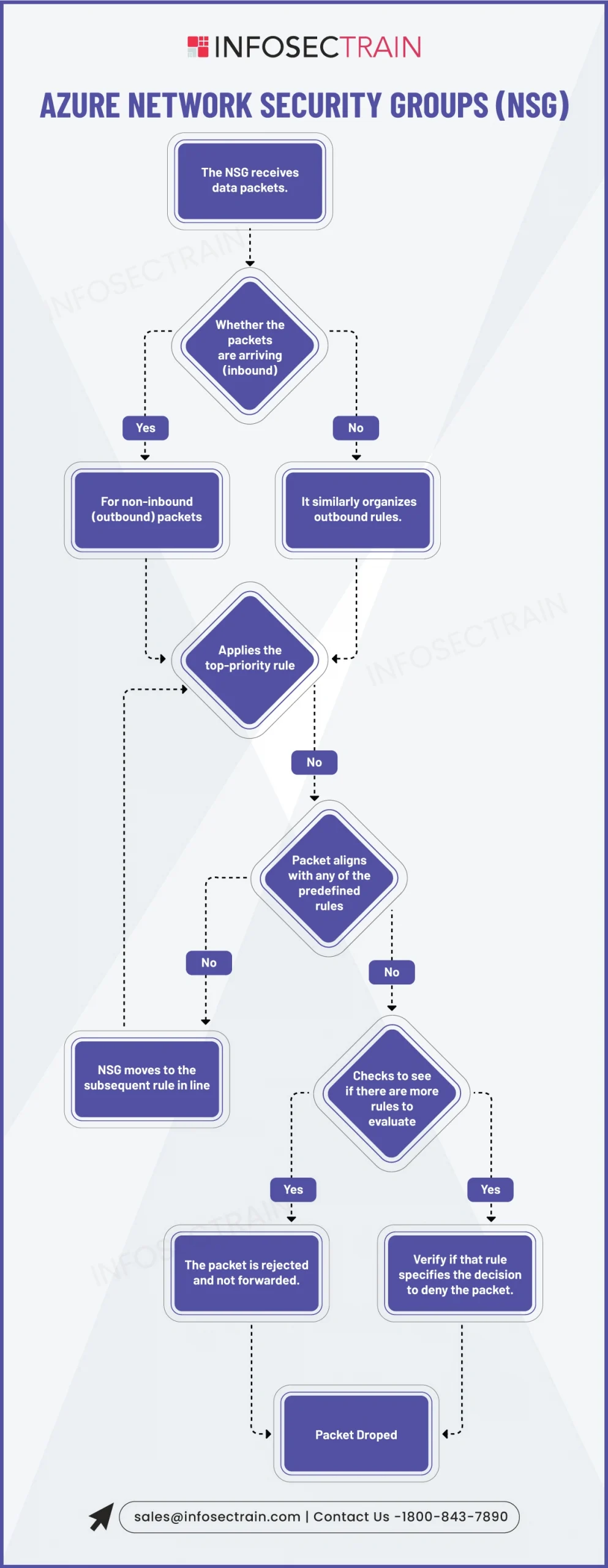Azure Firewall vs. Azure Network Security Groups (NSGs)
Network security is undeniably essential for modern cloud-based applications. Given the abundance of available security tools and devices, selecting the most suitable protection for a specific scenario can be a complex task. Take, for example, Azure Firewall and Azure Network Security Groups (NSGs) in the Azure cloud environment; although both are prevalent security measures, they serve distinctly different purposes.

Table of Contents
What is Azure Firewall?
Key Features of Azure Firewall
Azure Network Security Groups (NSGs)
Key Characteristics of Azure NSG
Azure Firewall vs. NSG: A Detailed Comparison
Azure Firewall vs. NSG: What to Choose?
What is Azure Firewall?
Azure Firewall is a cloud-native, fully-managed firewall service that offers advanced threat protection across OSI layers 3 to 7. It is an intelligent network security tool that extends beyond traditional IP, port, and protocol-based filtering, leveraging threat intelligence and signature-based Intrusion Detection and Prevention Systems (IDPS) to analyze network traffic for potential threats. This comprehensive service is Microsoft’s flagship for securing Azure Cloud workloads.

Key Features of Azure Firewall
- Stateful Packet Inspection: Azure Firewall examines network traffic at both the network and transport layers, making access determinations based on the source and destination IP addresses, ports, and protocols involved.
- Application Layer Filtering: It controls traffic based on Fully Qualified Domain Names (FQDNs) and application protocols, allowing granular control of network access.
- Centralized Management: Deployment and management across multiple Azure virtual networks and resources are centralized, easing the enforcement of consistent security policies.
- Threat Intelligence: It integrates with threat intelligence feeds to preemptively block known malicious IPs and domains.
Azure Network Security Groups (NSGs)
Azure NSGs function at OSI layers 3 and 4 and offer a more focused approach to network security. NSGs act like firewalls that can be associated with specific VNets, subnets, or VM network interfaces to control traffic. They operate using Access Control Lists (ACLs) that permit or deny traffic to Azure resources, thereby acting as gatekeepers based on specified conditions.

Key Characteristics of Azure NSG
- Traffic Filtering: NSGs provide network-level traffic filtering, enabling rule-based access through IP addresses, ports, and protocols.
- Stateful Inspection: They maintain the state of connections, which simplifies the creation of access rules.
- Application Layer Filtering (Limited): While NSGs primarily operate at the network layer, application-level filtering can be achieved to some extent via port-based rules.
- Resource-Specific Association: NSGs can be tied directly to Azure resources, allowing for targeted application of network security rules.
Azure Firewall vs. NSG: A Detailed Comparison
| Aspects | Azure Firewall | Network Security Groups(NSGs) |
| Traffic inspection | Azure Firewall performs deep packet inspection, offering rule-based control for inbound and outbound traffic and allowing FQDN-based filtering. | NSGs provide basic packet filtering without deep packet inspection or application-level scrutiny. |
| Integration | Azure Firewall integrates seamlessly with Azure’s ecosystem, allowing for centralized management and enhanced security policy orchestration. | NSGs are more isolated, applied to specific VMs or subnets, and can require additional configuration for comprehensive security. |
| Application visibility | Azure Firewall offers detailed application-level visibility, capable of identifying and controlling traffic based on application protocols and FQDNs. | NSGs lack application-level visibility, functioning at the network level and not distinguishing between applications or services on their own. |
| Dynamic rule updates | Azure Firewall lacks application-level visibility, functioning at the network level and not distinguishing between applications or services on their own. | NSGs have a static approach to rule updates, done via Azure portal, PowerShell, or Azure CLI, but are less dynamic compared to Azure Firewall. |
| Advanced threat detection | Azure Firewall includes advanced threat protection with threat intelligence-based filtering. | NSGs do not possess inherent advanced threat protection capabilities and need to be paired with services like Azure Security Center for such features. |
| Performance impact | Azure Firewall can scale for high-performance and complex rule sets without significant impact. | NSGs typically have a lower performance impact but can be affected by complex or numerous rules. |
Azure Firewall vs. NSG: What to Choose?
The choice between Azure Firewall and NSGs depends on the specific needs of your Azure deployment. Azure Firewall is the go-to for a robust, comprehensive network security solution capable of advanced threat protection and centralized management. It’s particularly suited for large-scale, complex deployments where uniform security policies across multiple resources are required.
NSGs, conversely, are ideal for more straightforward scenarios where granular, resource-specific traffic filtering is necessary. They are a suitable choice for scenarios that call for targeted security controls without the need for deep packet inspection or advanced threat intelligence.
Microsoft Azure with InfosecTrain
Are you looking to enhance your cloud security skills with Azure? Dive deep into the world of cloud security with InfosecTrain’s comprehensive Azure security training courses. Whether you are interested in mastering Azure Firewall for robust, high-level network traffic filtering or honing your skills in configuring Azure Network Security Groups (NSGs) for fine-grained access control, our course has you covered. Unlock the full potential of Azure’s security features and gain the expertise to secure your cloud environments effectively.






 1800-843-7890 (India)
1800-843-7890 (India)